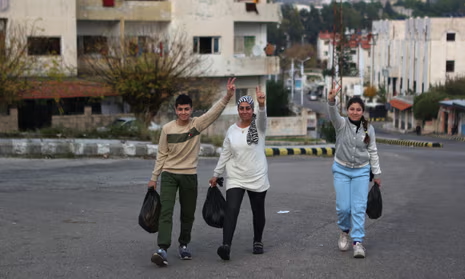
Eager hands motioned for me to sit down while a table and a chair on the side of a dirt road were quickly cleaned.
The leaders of a small, impoverished community close to the city of Jableh were introduced to me while more chairs were brought out and a side of lamb was gently swaying from a hook outside the butcher shop next door.
They are Alawites, a minority group from which the Assad family is sprung, like many others in Jableh.
For a significant portion of the 2011 start of Syria’s civil war, they were isolated from the majority of the bloodshed prevalent in the nation.
It’s hard to overestimate the animosity that a large portion of Syrian society harbours towards their communities, as many of the Assad family’s top military advisors and commanders were Alawites for fifty years.
During the conversation, it was evident they’re plain afraid – scared of sectarian revenge.
Muhammad Issa Allan, a community leader, informed me that the group wants to stop the use of heavy machine guns on pick-up trucks carrying masked HTS (Hayat Tahrir al Sham) soldiers.
Rather, they prefer organised patrols where local delegates accompany the rebel fighters on horseback.
“We want one state, and one people, and we wish that things will go on and improve,” he told me.
“We don’t want mafias, we want the Syrian state to be united as one.”




